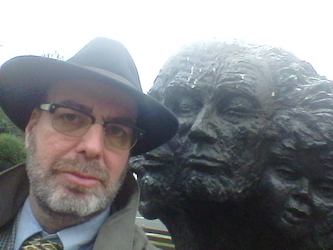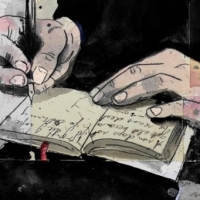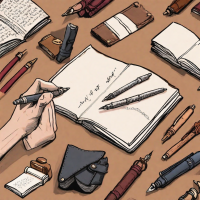We all know how Ye Olde Blogge loves us some Timothy Synder and his book, On Tyranny: Twenty Lessons from the Twentieth Century. It’s relevance remains with us to this day as the GQP continues its authoritarian power grab trying to see just how much authoritarianism the American people will tolerate. Well, y’all, he has done it again. He has written a very timely essay over to The New York Times Magazine that all y’all orta go over and read in its entirity, but only after you read my little commentary on it, okay? Then come back here, like, rate (five stars), and comment on this blog post so’s I knowed y’all were here because that is only right friendly like. Unfortunately, not only do you burn one of your free New York Times articles for the month in doing so, you also have to login to read it.
This essay is worthy of re-blogging because it links state legislation limiting what can be taught in schools, voter suppression legislation, and the culture war on Critical Race Theory and relates it all to the ways that the old Soviet Union and the current Russia have suppressed criticism and dissent through laws on what we can say out loud or publish. And, just like at the beginning of the Ol’ Pussy Grabber’s rein of error and incompetence, we should keep a list of the things they are telling us we can’t say, think, or do. You know, kinda like Amy Siskind did with her list (unfortunately, you have to burn your free Medium articles). We habituate so quickly to our environment, it is the only way to know what you’re missing after its gone. Keep a personal list. Share it with friends, acquaintances, and family.
Since when I re-blog sumthin, I always copy the first three paragraphs to get you started, you’re welcome to have a look see now because he opens with a lengthy review of how the Soviet Union under Stalin tried to cover up the Ukraine genocide of 1932 and traces the history of the use of memory laws — laws that regulate how we can talk about events in our history.
In 1986, Germany outlawed Holocaust denial. No one can publish anything claiming that the Holocaust didn’t happen. Germany refuses to allow its history to be revised since so many people want to deny it happened. They recognize it as the only way to have a chance of preventing it from ever happening again. Never forget, as the Germans say. This is especially good since as the survivors of the death camps die out, attempts to revise their history increase.
However, this law German law has been used as justification for more Orwellian laws like the recent Russian law, “Law Against Rehabilitation of Nazism,” which bans circulating information about Soviet World War II crimes that were not tried at Nuremberg — there were no Soviet crimes judged at Nuremberg. See how that works? It sounds great. We’re not going to tolerate no stinking rehabilitation of those Nazi bastards! So, you can only talk about that which was tried at Nuremberg. Never forget! Talk about a gaslighting mindfuck. Lest you think such a law is unworkable or some other way being misinterpretted, it was used to convict a blogger who dared publish that the Soviet Union invaded Poland in 1939 to start World War II.
Synder goes on to compare the effects of these memory laws to recent laws and commissions in the US starting with Trump’s response to the 1619 Project, The President’s Advisory 1776 Commission, which found slavery was only one of several historical challenges to American principles, like progressivism and identity politics, essentially equating the three in terms of infamy. Being a progressive was as bad as being a slave holder. Hunh. Go figure.
The state laws that now ban the teaching of Critical Race Theory either explicitly or implicitly even though it isn’t taught in K – 12 curricula anywhere in any state do so by criminalizing any teaching that causes someone to experience psychological distress because of their race or gender. In other words, you can’t hurt white kids feelings by pointing out that our ancester’s owned real live human beings, denied them their rights, and beat and murdered them with impunity. You can’t acknowledge that because of slavery and continuing racism their is a wealth gap between whites and Blacks and that the hard work of whites is (a) not as hard as the hard work of Blacks and (b) is not actively oppossed and repressed as that of Blacks is. Of course, no one gives a fig about the feelings of Black students who will notice that their own history has been whitewashed, almost literally.
These memory laws that the states are passing are part of the authoritarian trick of the politics of eternity. As explained on Ye Olde Blogge:
The politics of eternity is the mood ring approach to interpreting the past and projecting it onto the future. It fools us into believing in a mythological past that is easily manipulated since they never really existed and gives us something to strive toward by returning to the past, but since it the past never really existed we can never really achieve it in the future. It is the three-card Monty approach to governance.
On Tyranny: from Inevitability to Eternity or How Tyranny Came to America
White conservative America is trying to preserve a past that never existed in order to perpetuate a system that continues to repress those that disagree with it and create a system that is authoritarian and antithetical to democracy. They mean to use this lullaby of a rosy past to get us to accept a system that will have us all living in Cancer Alley, drinking Flint water, happily paying exorbinent prices for Texas utilities, and dying quickly and quietly when we start to cost more than we contribute.
Their calculation is that as long as it hurts Black people first and worst, white racists will embrace it enthusiastically and accept whatever damage it does to them as necessary to maintain the racial hierarchy that inflates their egos. It is the enactment of Lyndon Johnson’s insight that “If you can convince the lowest white man he’s better than the best colored man, he won’t notice you’re picking his pocket. Hell, give him somebody to look down on, and he’ll empty his pockets for you.”
That is not the more perfect union that I want to live in or to leave to my daughter. When memory laws try to revise and restrict history, the study of history becomes a mandatory act of resistance.
The War on History Is a War on Democracy
A scholar of totalitarianism argues that new laws restricting the discussion of race in American schools have dire precedents in Europe.
By Timothy Snyder 29 June 2021
In March 1932, the cover of Fortune magazine featured a painting of Red Square by Diego Rivera. A numberless crowd of faceless men marched with red banners, surrounding a locomotive engine emblazoned with hammer and sickle. This was the image of communist modernization the Soviets wished to transmit during Stalin’s first five-year plan: The achievement was impersonal, technical, unquestionable. The Soviet Union was transforming itself from an agrarian backwater into an industrial power through sheer disciplined understanding of the objective realities of history. Its citizens celebrated the revolution, as Rivera’s painting suggested, even as it molded them into a new kind of people.
But by March 1932, hundreds of thousands of people were already starving to death in Soviet Ukraine, the breadbasket of the country. Rapid industrialization was financed by destroying traditional agrarian life. The five-year plan had brought “dekulakization,” the deportation of peasants deemed more prosperous than others, and “collectivization,” the appropriation of agrarian land by the state. A result was mass famine: first in Kazakhstan, then in southern Russia and especially in Soviet Ukraine. Soviet leaders were aware in 1932 of what was happening but insisted on requisitions in Ukraine anyway. Grain that people needed to survive was forcibly confiscated and exported. The writer Arthur Koestler, who was living in Soviet Ukraine at the time, recalled propaganda that presented the starving as provocateurs who preferred to see their own bellies bloat rather than accept Soviet achievement.
Ukraine was the most important Soviet republic beyond Russia, and Stalin understood it as wayward and disloyal. When the collectivization of agriculture in Ukraine failed to produce the yields that Stalin expected, his response was to blame local party authorities, the Ukrainian people and foreign spies. As foodstuffs were extracted amid famine, it was chiefly Ukrainians who suffered and died — some 3.9 million people in the republic, by the best reckoning, well over 10 percent of the total population. In communications with trusted comrades, Stalin did not conceal that he was directing specific policies against Ukraine. Inhabitants of the republic were banned from leaving it; peasants were prevented from going to the cities to beg; communities that failed to make grain targets were cut off from the rest of the economy; families were deprived of their livestock. Above all, grain from Ukraine was ruthlessly seized, well beyond anything reason could command. Even the seed corn was confiscated.
Continue reading at The New York Times Magazine: The War on History Is a War on Democracy

Blogging is a lonely business. Help encourage it by leaving one, two, or all of the following signs of life:

Leave a comment telling us about your reaction to watching our democracy slide into authoritarianism.

Like this post using the handy-dandy like button below!

Give us a five-star rating using the stars just below the title above!

Join our email list by subscribing
Image Attribution
“Books Burned” by darkday. is licensed under CC BY 2.0
Categories: ReBlogged





















Hey Jack- Try his book – The Bishop’s Pawn by Steve Berry. Is there anything in this account of MLK’s death that those sanitized history proponents might wish to forget?
LikeLiked by 2 people
Howdy James!
Historical fiction, especially historical political fiction, is right up my ally. It sounds like a good one to pick up. I’ll look for it.
Huzzah!
Jack
LikeLiked by 2 people
I bet many Americans do not know enough about Russia’s WW2 history, and that’s a shame. I don’t recall learning any of this in high school. Once in college, well, we were dealing with Reagan who only seemed concerned about economics and not humanitarian issues. I learned from him that Republicans believe that Freedom only means free to make a buck.
Regards,
Tengrain
LikeLiked by 2 people
Howdy Ten!
I was the nerdy kid who knew almost EVERYTHING there was to know about World War II. I remember reading Shirer’s “The Rise and Fall fo the Third Reich” when I was a sophomore. I had a friend who was such a nerd that he knew all the thicknesses of the armor on every tank used in the war. Still, I didn’t hit my USSR phase until watching the movie, “Reds,” and being told I had a vague resemblence to Trotsky since I wore a goatee before it was cool. Suffice it to say that I was self taught.
In retrospect, I think it was more fairly put to say that Reagan believed in your freedom to give the 1% your bucks.
Huzzah!
Jack
LikeLiked by 1 person
Reblogged this on cabbagesandkings524 and commented:
Calico Jack – Authoritarian dots connected
LikeLiked by 1 person
That is quite an excellent article. I’m reminded of a quote:
“If you want to know who rules over you, look at who you are not allowed to criticize.” ― George Orwell
Linking the various subjects is important because the human cognitive tendency is to pay attention to only one at a time and so not see the pattern which connects them.
LikeLiked by 2 people
Howdy Bob!
I hadn’t known much about memory laws before reading Snyder’s article. Of course, I went down that rabbit hole for the better part of the day. It was the linkage to the the emotional and feeling part of it that got me. The point of memory laws is to manage the way people feel about the past.To get them to accept a non-critical idealization of it. If we taught Critical Race Theory or whatever the equivalent would be in K – 12 curricula — the truth, maybe? — we wouldn’t feel so good about the past, but we might feel better about our future. It is the discomfort that comes from reckoning with the sins of our past that causes us to improve our future. No one changes unless they are in enough pain to change.
Damn, I can’t believe I spent the better part of the day thinking about all that and couldn’t express it as plainly and succinctly as I just did. I may have to revise the post now.
Huzzah!
Jack
LikeLiked by 2 people
I think the post worked just fine, and if people read the comments they will see this version. {Hint, people – read the comments}
LikeLiked by 2 people
Howdy Bob!
You may be right about the post. I will try to work the material in to the weekly Whaz Up post. I think that some people do read the comments. I know I’ve gotten into the habit of it when comments occur after blog posts. I don’t often delve into the comments in other forums, though. They can be just too toxic and unbearable.
Huzzah!
Jack
LikeLiked by 2 people